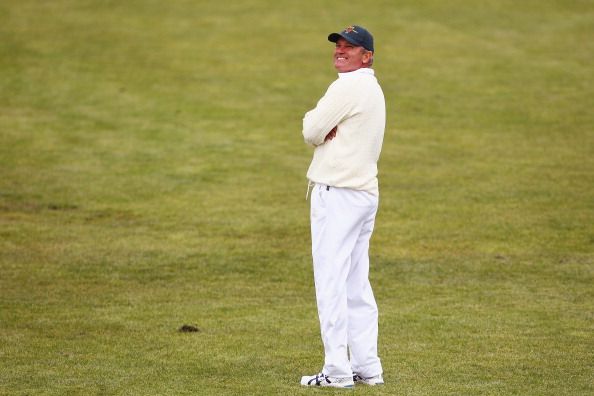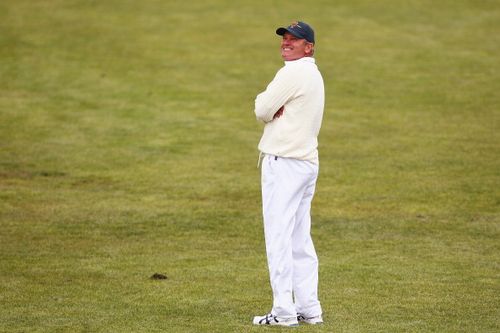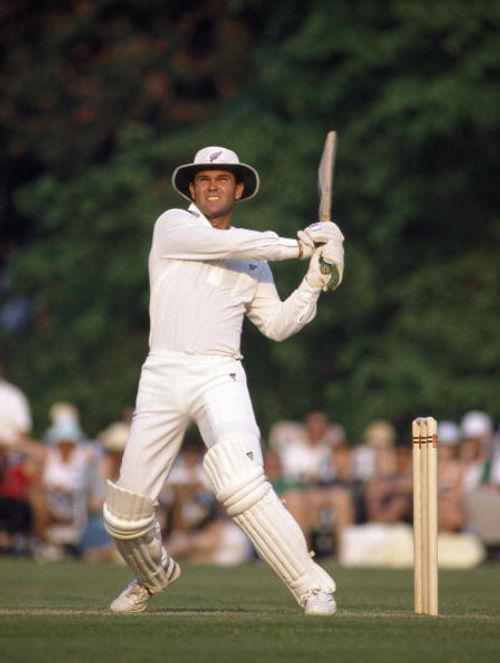
Addicted to cricket: The Martin Crowe story

Former New Zealand cricketer Martin Crowe looks on during the Mens Premier Reserve Grade cricket match between Papatoetoe and Cornwall at Papatoetoe Recreation Ground on November 5, 2011 in Auckland, New Zealand. (Getty Images)
It often happens that if one person goes on to represent a country, state or club in cricket, another one from the same family usually takes up the sport and excels in it.
We hear of the Chappell brothers and the Waugh twins from Australia, the Flower and Strang brothers from Zimbabwe, or in more recent times, the McCullum pair from New Zealand. However, the Kiwis have also given another cricketing family to the game – the Crowes.
And one of them went on to make a mark for himself at both first-class and international level as a batsman and a captain.
Martin David Crowe is one of the finest players New Zealand has ever produced.
Born to former NZ first-class cricketer Dave on 22 September 1962, Martin played with his older brother Jeff, who went on to ply his trade on the domestic circuit in South Australia before returning to captain his country in six Tests. Blessed with sound technique and excellent footwork, the younger Crowe made his first-class debut for Auckland in 1979.
A reasonable performance with the bat led to Martin being selected for the 1981-82 home series against Australia. He made his ODI debut first, soon followed by his Test debut against the same opponents.
In both formats, however, he struggled to make an impact. The presence of stalwart opener Bruce Edgar and skipper Geoff Howarth in the side – both in excellent batting form – meant that Martin got limited opportunities to prove himself.
He scored his maiden Test century in January 1984 against the touring English, and together with Jeremy Coney, helped his side to post 537 in the second innings and force a draw.
In the same year, the 22-year-old moved to English county side Somerset, which was hampered by the departure of the great West Indian Viv Richards for international duty. He had just come off a tough tour of Sri Lanka, having been felled by food poisoning.
A broken thumb, a strange environment, homesickness and the anxiety to do well compounded his woes. As a result, he could manage only five consecutive single-digit scores in the last week of May that year. Crowe admitted later that he wanted to return home and just cry.
But then something strange happened.

Martin Crowe batting for New Zealand during the match between Lavinia Duchess of Norfolk’s XI and New Zealand at Arundel, 6th May 1990. New Zealand won by 7 wickets. (Getty Images)
The young man displayed a maturity that was rare for people of his age at the time. The perfect technique – old-fashioned yet proper, translated a bleak May into a glorious June. Four centuries in successive Championship games lead to him making 719 runs at a stunning average of 143.8. Martin himself recalled the game against Leicestershire produced his “gutsiest” innings ever.
On a fresh pitch, West Indian fast bowler Andy Roberts was breathing fire and Somerset were struggling to negotiate his hostile pace. But the Auckland youngster never flinched, matching Roberts blow for blow, playing purely on instinct, but without losing any of his technical strength.
Martin finished with an unbeaten 70, scoring almost half of Somerset’s total of 151; a knock driven purely by sheer force of will. In the second innings, he shared a record stand of 319 with captain Peter Roebuck (128), scoring a faultless 190, as Somerset chased down 341 in 87 overs, and went on to win the Championship against Nottinghamshire that season.
Returning to international cricket for the 1985 season, Martin once again squared off against the Australians in their backyard. At the first Test in Brisbane, Richard Hadlee destroyed the Australian line-up with 9/52 as they made 179 in the first innings.
Crowe and John F Reid then took over, putting on a 224-run stand for the third wicket. The former oozed class and confidence as he hammered 26 fours on the way to a magnificent 188; a subliminal innings that enabled the Black Caps to win a Test in Australia for the first time.
Knocks of 71 and 42 in the third Test secured their first overseas win, and Martin became the Wisden Cricketer of the Year for 1985.